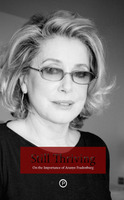Still Thriving
On the Importance of Aranye Fradenburg
| dc.contributor.author | Fradenburg, L.O. Aranye | |
| dc.contributor.editor | Joy, Eileen A. | |
| dc.contributor.editor | Evans, Ruth | |
| dc.contributor.editor | Joy, Eileen A. | |
| dc.contributor.editor | Orlemanski, Julie | |
| dc.contributor.editor | Remein, Daniel C. | |
| dc.contributor.editor | Snediker, Michael D. | |
| dc.date.accessioned | 2019-03-26 23:55 | |
| dc.date.accessioned | 2020-01-23 14:09:07 | |
| dc.date.accessioned | 2020-04-01T10:42:17Z | |
| dc.date.available | 2020-04-01T10:42:17Z | |
| dc.date.issued | 2015 | |
| dc.identifier | 1004573 | |
| dc.identifier | OCN: 945783126 | en_US |
| dc.identifier.uri | http://library.oapen.org/handle/20.500.12657/25522 | |
| dc.description.abstract | The work of L.O. Aranye Fradenburg, especially her psychoanalytic criticism of Chaucer, and her formulations of discontinuist historical approaches to the Middle Ages, has been extremely influential within medieval studies for the past 20 or so years. More recently she has been focusing on more broad defenses of the humanities, especially with regard to the valuable role of literary studies relative to the arts of everyday living, eudaimonia [flourishing], ethical community, and well-being, and also on psychoanalysis itself as a “liberal art.” Relationality, intersubjectivity, aliveness, resilience, care of the self and also of others, adaptive flexibility, playfulness, shared attention, companionship, healing, and thriving seem, increasingly, to be the key watchwords and concerns of Fradenburg’s work, and at the same time, the so-called “literary” mode is still central to these concerns, such that, as Fradenburg has written, “Interpretation and relationality depend on one another because all relationships are unending processes of interpretation and expression, listening and signifying. In turn, sentience assists relationality: we can’t thrive and probably can’t survive without minds open to possibility, capable of sensing and interpreting the tiniest shifts in, e.g., pitch and tone.” This small volume features short essays and personal reflections on the importance of Fradenburg’s career, as teacher and scholar, and also on the valuable role(s) that her work, and medieval studies more generally, has played and might still play in the defense of the humanities as essential to living and thriving. | |
| dc.language | English | |
| dc.subject.classification | thema EDItEUR::D Biography, Literature and Literary studies::DS Literature: history and criticism::DSB Literary studies: general::DSBB Literary studies: ancient, classical and medieval | en_US |
| dc.subject.other | medieval studies | |
| dc.subject.other | literature | |
| dc.subject.other | humanities | |
| dc.subject.other | well-being | |
| dc.subject.other | Aranye Fradenburg | |
| dc.title | Still Thriving | |
| dc.title.alternative | On the Importance of Aranye Fradenburg | |
| dc.type | book | |
| oapen.identifier.doi | 10.21983/P3.0099.1.00 | |
| oapen.relation.isPublishedBy | 979dc044-00ee-4ea2-affc-b08c5bd42d13 | |
| oapen.relation.isbn | 9780988234031 | |
| oapen.collection | ScholarLed | |
| oapen.pages | 88 | |
| oapen.place.publication | Brooklyn, NY | |
| oapen.identifier.ocn | 945783126 |

